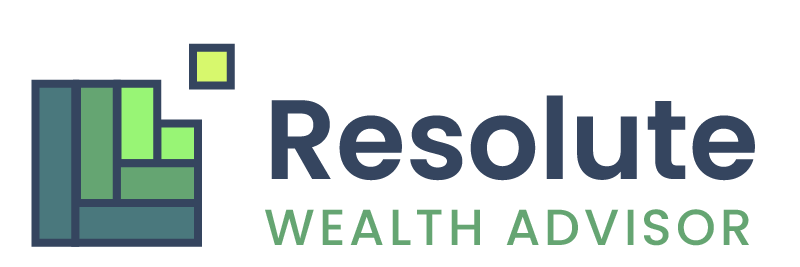Financial Wellness Strategies That Can Set You Up for the Decades Ahead
Are you looking to build wealth in your 40s? You may be worried about ensuring you have enough saved for retirement and unsure how to reach your financial goals. If that’s the case, you’re not alone—the average 401K balance for Americans in their 40s is $120,800, according to CNBC.
The good news: once you reach your 40s and retirement isn’t as far off as it once was, there are still strong strategies you can use to build your wealth and invest in your future. The most important step: start today.
Below we’ll review seven ways you can make the most of this milestone and maximize your savings.
1. Max Out Your Retirement Plans
One of the best ways to grow your retirement savings before your 60s is to take full advantage of your employer-sponsored options. If your employer offers a retirement plan like a 401(k), 403(b), or 457(b), make sure you’re contributing the maximum amount possible. And if they match your contributions, that’s even better—matching is essentially free money that can make a real difference in reaching your goals.
Another good tip: You can max out both a 401(k) and an IRA in the same year, as long as you meet the required IRS qualifications.
2. Be Strategic About Investments
Once your retirement accounts are set up, it’s time to turn your attention to investment strategies. How you invest is a personal choice but determining the types of investments include in your portfolio is a key step in this process.
Are you a more aggressive investor who is willing to take on a higher level of risk for the potential of a higher investment return? Or are you more risk-adverse, and are looking to minimize potential losses within your portfolio?
When considering the various investment options available, your choices can seem overwhelming, but here is a quick overview of some of the common investment selections available to you:
- Individual stocks allow you to invest directly into individual companies and can be risky, so make sure you’ve done your research and stay regularly updated on market trends.
- Mutual funds and index funds can help you minimize your risk by spreading it across multiple companies. By adding a layer of diversification to your portfolio, it is likely that you won’t have as big of a return as if you invested directly, but it can be a smart option for people who want to build wealth in a more hands-off way.
- International stocks and mutual funds allow you to further diversify your overall portfolio by investing a portion of your assets in international companies. While you can invest in individual stocks, just as you do with U.S.-based stocks, choosing an International Index or Mutual Fund could help further reduce your overall portfolio risk.
- Fixed income and bonds can provide a level of stability to your portfolio by allowing you to invest in less risky, income-producing securities. Again, by implementing this type of investment, you will be adding additional diversification to your overall portfolio.
Being strategic when developing your investment portfolio can have an impact on achieving your retirement goals and is an important step in building wealth for you and your family; especially at this stage in your life. While some people choose to make these decisions on their own, some investors choose to work directly with their financial advisor to make these decisions.
SEE ALSO: Financial Planning Tips for Young Families
3. Make a Plan to Pay Off Debt
It’s hard to build wealth while you’re underwater with too much debt. If you have mortgage payments, personal loans, credit card bills, or other debt, creating a debt payment plan can make it manageable to move forward.
There are many tactics, but choosing one of these is a great way to get started:
- The avalanche method involves paying the minimum on all your debts but paying as much as possible towards the account with the highest interest rate. If you repeat that process until each one is paid off, you can plot a course toward being debt-free.
- The snowball method means you make the minimum payments on all your accounts, but focus any extra cash on the debt with the highest balance first.
These strategies can be long- or short-term depending on your income and comfort level. Making a plan is an important first step to take and can help keep you on track.
4. Curb Your Spending
One of the best ways to build wealth in your 40s is to keep a close eye on your spending. Even little things can add up to have a sizable impact on your ability to save money. If you’re having a hard time being able to max out your retirement contributions, or you don’t have much of a nest egg yet, try tightening up your budget.
It can be tough to get a handle on your expenses. A good way to gain insight is to check your bank and credit card accounts to better understand your spending trends. Once you see where your money is going, it’s easier to identify where you can trim. Saving money now will pay big dividends over the next few decades.
5. Get Expert Help with Estate Planning
Estate planning is critical as you build wealth in your 40s. Though estate planning is mostly about what happens after your die, building and preserving wealth now does more than protect the people you love when you move on. It can be a way to add to generational wealth for the long term.
Make sure you use a skilled financial expert to help you set up the right life insurance policy, arrange your financial affairs and position yourself in the best way possible. If you have family or dependents, an estate plan can ensure your loved ones are taken care of.
SEE ALSO: How to Make the Most of Your Health Savings Account
6. Diversify Your Income Streams
Having an income that helps you meet your financial goals is a comfort, but adding additional income streams can help you build wealth. Diversifying your income doesn’t have to take up all your time either. Here are a few ways you can make money without working around the clock:
- Freelance a few hours a week in your field
- Work part-time at a local shop or cafe you enjoy
- Become a virtual assistant
- Open your own Etsy shop
- Create a product to sell online or at local marketplaces
If you aren’t sure where to start, think about your skills, experience, and hobbies.
7. Downsize to a Smaller Home
As you age, you may outgrow your need for your home’s large footprint. If you find yourself with more rooms than you need, or you’re more than halfway through your mortgage term, now may be a good time to sell. Making a move could create a sizable profit, depending on your sale and purchase price, and save you hundreds per month in mortgage payments.
Building Wealth in Your 40s: Key Takeaways
As you enter your 40s, you may be feeling like you haven’t saved as much money as you’d like. Thankfully, there’s no reason to panic—it’s not too late to create the future you envision. Take small steps forward, make sustainable plans, and reconsider expenses, and soon you’ll be well on your way to your savings goals.
If you’d like to partner with a professional on your wealth-building journey, contact us today. At Resolute Wealth Advisor, we provide personalized service and deep expertise to help you meet your personal financial goals.






